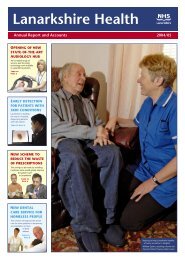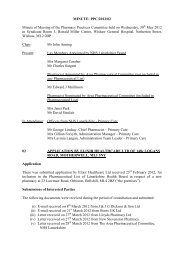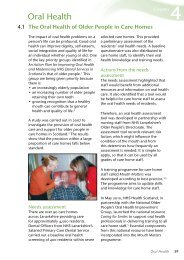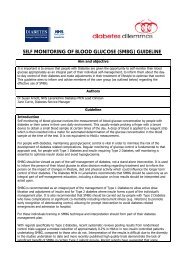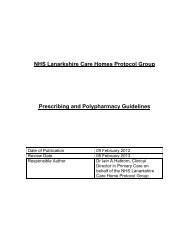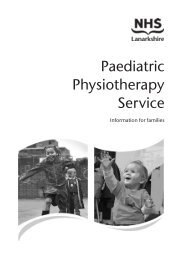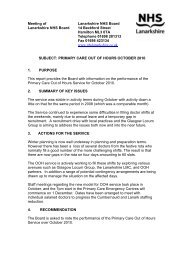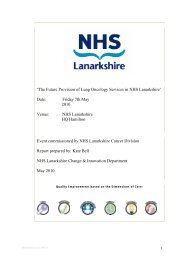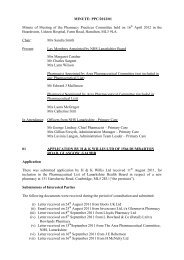Palliative Care Guidelines - NHS Lanarkshire
Palliative Care Guidelines - NHS Lanarkshire
Palliative Care Guidelines - NHS Lanarkshire
- No tags were found...
You also want an ePaper? Increase the reach of your titles
YUMPU automatically turns print PDFs into web optimized ePapers that Google loves.
Depression in <strong>Palliative</strong> <strong>Care</strong>Introduction<strong>Palliative</strong> <strong>Care</strong> <strong>Guidelines</strong>: Depression• All patients should be assessed for depression.• Depressiono is strongly and consistently associated with a poor quality of life.o causes more reduction in role and social functioning than would be due to the physicalillness alone.o reduces physical functioning.o is often associated with symptoms that are difficult to control.o has a major impact on the patient’s family.• Treatment of depression can significantly improve quality of life and is as effective in palliativecare as in other situations.Assessment• Physical symptoms commonly associated with depression may be due to physical illness ortreatment so are less helpful in making a diagnosis.o Weight/appetite changeo Insomniao Loss of energyo Fatigueo Psychomotor slowingo Loss of libido• Depressive symptoms in palliative care patients include:o Greater severity of dysphoric mood.o Excessive feelings of hopelessness, guilt, worthlessness.o Social withdrawal; loss of pleasure in daily activities.o A wish for earlier death (or suicidal thoughts).o A positive response to the question “Do you feel depressed?”• Risk factors:o Personal or family history of depression.o Concurrent life stresses.o Absence of social support.o Oropharyngeal, pancreatic, breast and lung cancers (more common).• Additional barriers to diagnosis:o Patient/family feeling that a “fighting spirit” is needed to maximise active treatment/ supportfrom health professionals.o Difficulty deciding if depression is a primary problem or whether improving other symptomswould improve mood.o Concerns about polypharmacy and drug interactions.o Other physical/ psychological conditions mimicking depression.• Exclude hypoactive delirium (see: Delirium).• Review medication (haloperidol can cause motor retardation).o Complex care packages; many staff involved and lack of continuity.Assessment tools:• In primary care, the PHQ-9 is used as a screening tool.• The Brief Edinburgh Depression Scale is suited to palliative care patients.• The Hospital Anxiety and Depression questionnaire is widely available but relies on physicalsymptoms so may be less helpful.© <strong>NHS</strong> Lothian Issue date: January 2009 Review date: March 20121



